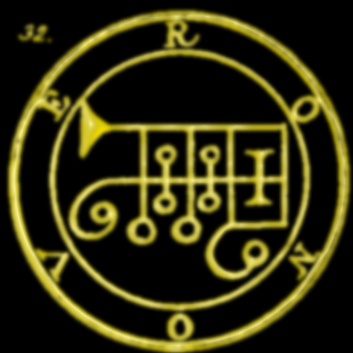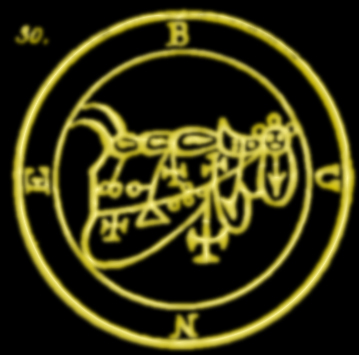Continuing previous lines of thought:
9 The name of the fourth is Penemue*: he discovered to the children of men bitterness and sweetness;
10 And pointed out to them every secret of their wisdom.
11 He taught men to understand writing, and the use of ink and paper.
12 Therefore numerous have been those who have gone astray from every period of the world, even to this day.
13 For men were not born for this, thus with pen and with ink to confirm their faith;
14 Since they were not created, except that, like the angels, they might remain righteous and pure.
15 Nor would death, which destroys everything, have effected them;
16 But by this their knowledge they perish, and by this also its power consumes them.
1 Enoch** 68: 9-16 (context: http://www.johnpratt.com/items/docs/enoch.html#68 )
There are plenty of references that conflate Enoch’s twenty-one deans of the University of the Fallen to the seven fish-men sages of Akkadian/Sumerian Apkallu/Abgal traditions, possibly with good reason. Stories mutate and evolve with the cultures that host them. As the settlements of humanity split and disperse, and the languages in which they are recorded drift apart, the stories that sustain those cultures also diverge, allowing for the application of an evolutionary model. Attempts to reverse-engineer the original stories is exactly as useful (and accurate, which is to say not very) as the attempt to reconstruct a proto-IndoEuropean language from modern spoken languages on Indo-European-derived cultures. But the constructs, modern though they must be, still have some utility despite the taint of modern thinking.
Antediluvian dates are plagued with the same problem that exists with any of the proto-Semitic cultures, namely the confusion between months and years as measures that makes Adam and Methusaleh’s lifespans have numbers in the 900s instead of 70s and list Noah as 400 when he started construction on his ark instead of, say, in his 30s.
Correcting for that, Sumer’s Adapa of the sages could be at least vaguely contemporaneous with the somewhat better documented Imhotep of the Egyptians, give or take a few hundred years.
[*]
__________
* “Penemue” is rumored to mean “the inside”, but I find nothing but assertions, no references to any languages in which this is the case. In the words of Wikipedia, [citation needed].
** translated from Ethiopic by Richard Laurence, London, 1883 (asserted by John P. Pratt, wealth of commentary on science, chronology and various flavors of divine apologetics, http://www.johnpratt.com/ )







The taint of modern thinking is the addition of emotional, relative, and usage aspects to language and thought. It fucks everything up, so many lines are blurred in the interest of equality, or what many would define as equality (I call it shitting in your neighbour’s yard). Early civilizations based language on logical sensory info only. Words only to accurately describe what is seen, what is known, etc. Mathematical systems were far advanced as well, simplifying massive numbers for an understanding of the universe which we have forgotten, or has been hidden? I tend to believe that the answers are the most logical and obvious, not these modern poetic interpretations of “art”. No symbolism to the extent with which we confuse ourselves with today. Much like the rules of pure science and mathematics, there was no room for innovation. Not for early humans anyway. Which beggars this question: Why and how has so much history been forgotten? Why the quantum leaps in evolution and technology… that is, considering that the earliest civilizations exhibited far advanced knowledge, then suddenly we’re stupid again, only to once more advance to a state that still falls behind our ancient ancestors? We’re only discovering what history has left behind for us to discover. There is no original thought, no creation, only what we see, what we’ve been taught, only what already is.
Language translation is one of the few things on this planet that is pretty much agreed upon. The interpretation is where it gets messy. And what does that mean, exactly? My opinion? Ego. The human freakin ego. Nothing beyond what has been established in intelligent systems and religion is possible, right? If it sounds too fantastical or challenges religion, any method of control, then it’s bullshit, conspiracy theory, heretical, yes?
So the first of man lived for hundreds of years… why not? How the hell did Noah complete the task of collecting 2 of every species into one location, build and ark to house all these creatures and that could withstand hell on high waters and a dangerous receding of the deluge? In one human’s adult lifespan? And the texts speak of these men seeing generations through… Many generations… Only possible if there was much longer lifespan?
Reverse engineering. Ha. Will be our demise, from start to finish. That is, if you look to the stars like I do…. ;))
Um, this is continued from which post? I wanna seeeee